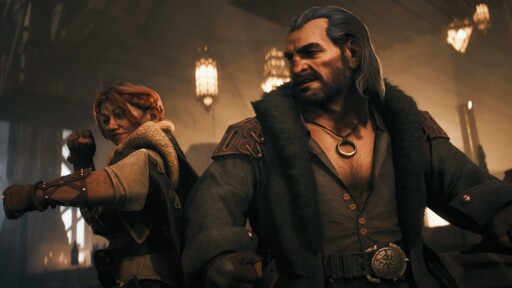I’ve noticed a trend—particularly in some recent RPGs—of, well, let’s call it ‘Netflixiness’.
Dialogue designed to leave absolutely nothing to interpretation, to exposit information in the most direct way possible, devoid of any real character or context. There’s an assumption that any moment the audience spends confused, curious, or out-of-the-loop is a narrative disaster.
I hate to keep knocking Dragon Age: The Veilguard about, especially since I still had a decent time with it all told, but the thing that made me break off from it after 60 hours really was its story. It’s a tale that does get (slightly) better, but it gave me a terrible first impression I never quite shook.



Yeah, I’m gonna say this person doesn’t hate to keep knocking on Veilguard, because that seems to be the one example they can bring up. I mean, there’s a cursory name check of Dawntrail, but otherwise… yeah, not sure what games this is talking about other than Dragon Age.
Clair Obscur didn’t do that. It went to absolute pains to not do that, in fact, to the point where I find the deceptive twist-building a bit over the top, in retrospect. I wouldn’t accuse the CDPR games of going that route. Baldur’s Gate does overexplain often, but in their defense the game has a million characters, plot points you go through out of order and a runtime in the hundreds of hours, so I wouldn’t change that.
What else is even doing this? I feel like we’re back in “AAA sucks” territory where AAA stands in for “this one game I didn’t like”. Writing in games runs the gamut. I would struggle to find a single defining thing to praise or criticise across the board.